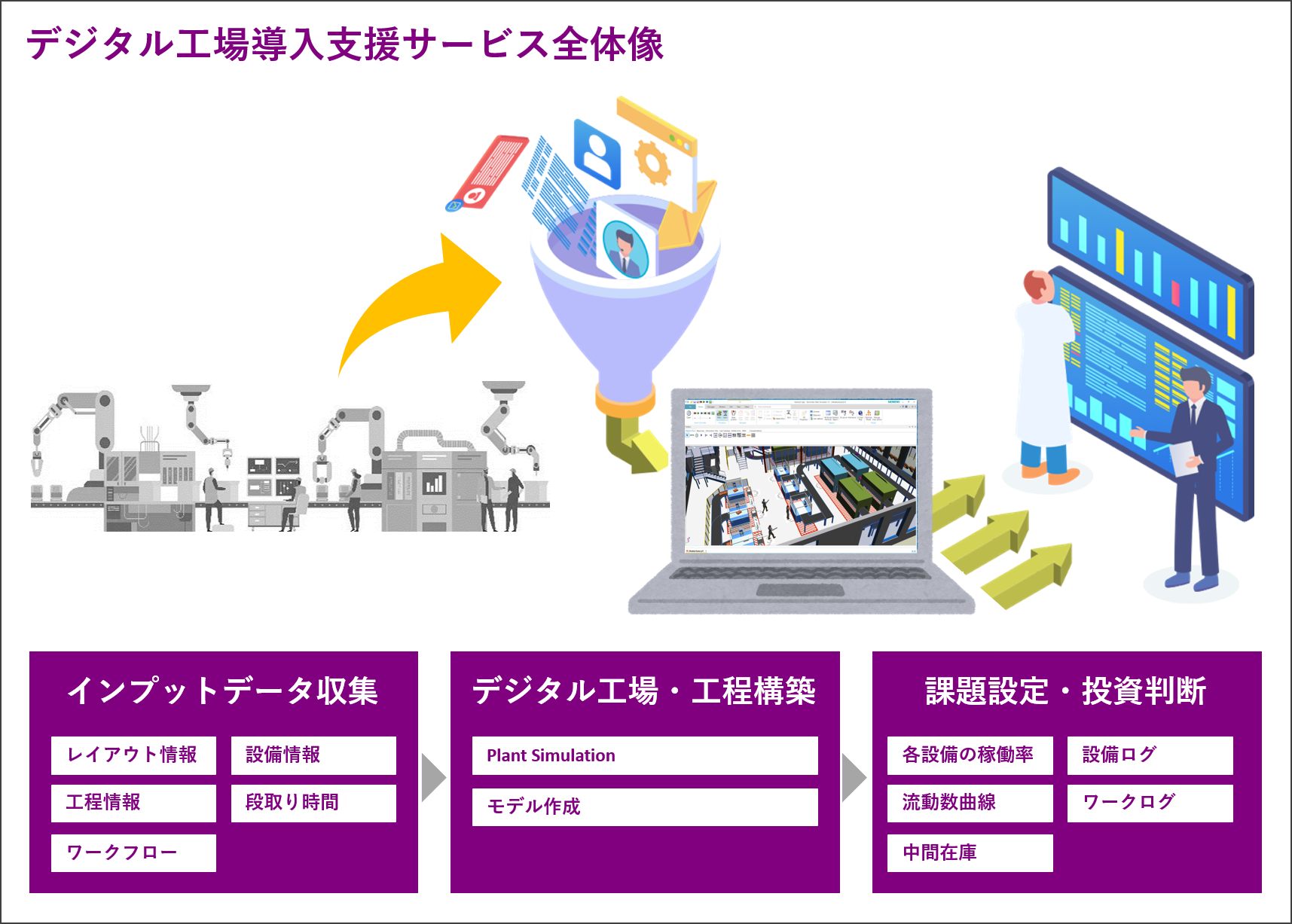Significantly reduce the burden of promoting a highly difficult DX project
Macnica (hereinafter Macnica; head office: Yokohama City, Kanagawa Prefecture; Representative Director and President: Kazumasa Hara; capital: 11,194 million yen), a total service/solution provider in semiconductors, networks, cybersecurity, and AI/IoT, has begun offering "Digital Factory Implementation Support Services" for manufacturing companies that are promoting digitalization and DX projects.
In recent years, the environment surrounding the manufacturing industry has become increasingly severe, such as COVID-19 (COVID-19) and a shortage of human resources. Due to growing customer needs, it is necessary to respond flexibly to various environmental changes, such as responding to variable-type and variable-volume production, plant shutdowns due to the corona disaster, and reviewing production plans.
Under such circumstances, an increasing number of companies are promoting digitalization and DX projects at production sites that utilize IoT and AI technologies to solve these issues.
One of the reasons why DX projects are not progressing in the domestic manufacturing industry is that the DX project team generally promotes the project while working to build consensus in cooperation with the manufacturing site, related departments, and management. This is because it has become extremely difficult to set challenges and prepare supporting data to measure The key to the success of the project is how quickly and at low cost the set of tasks and the data needed to build consensus can be prepared.
Under these circumstances, Macnica has launched a new project that utilizes Siemens' Plant Simulation, which boasts the world's top market share, with the aim of understanding the current status of manufacturing sites and setting issues in a short period of time, targeting manufacturing industries that are promoting DX projects. We have started providing a service called `` Digital Factory Introduction Support Service.''
The basic concept of this service is to gradually improve the accuracy from a rough overview, and since an input and output library is provided, all you have to do is prepare the necessary data and the computer It will be possible to reproduce the actual factory model in the digital space of this with an accuracy of about 70 to 80%. Most of the necessary data is data recorded at the manufacturing site, such as workflow, setup time, processing time of each equipment, etc., and it is possible to create a factory model in a digital space in as little as two weeks* 1. .
In addition, by performing simulations based on the created model, it is possible to understand the current state of the factory and general trends, and it is possible to clarify the actual issues that need to be addressed and the data that will be needed to do so. points are a big advantage. This makes it possible for the relevant departments promoting DX projects to understand the overall situation, set issues, and make investment decisions based on common data. Macnica also provides an escort service so that customers who use this service can utilize and operate the digital twin in their own companies.

Based on our experience supporting the DX projects of various clients, mainly in the manufacturing industry, Macnica believes that the introduction of digital twins and simulations is effective in making DX projects successful. Through supporting the introduction of these technologies, we will continue to promote DX in the manufacturing industry.
* 1 It will vary depending on the customer's environment.
*Company names and product names mentioned in this text are trademarks or registered trademarks of Macnica and each company.
*The information published in the news release (including product price, specifications, etc.) is current as of the date of announcement. Please note that the information may be subject to change without prior notice.
